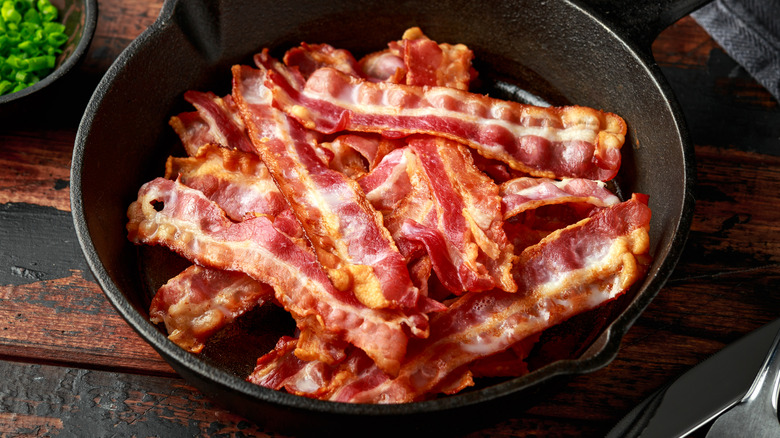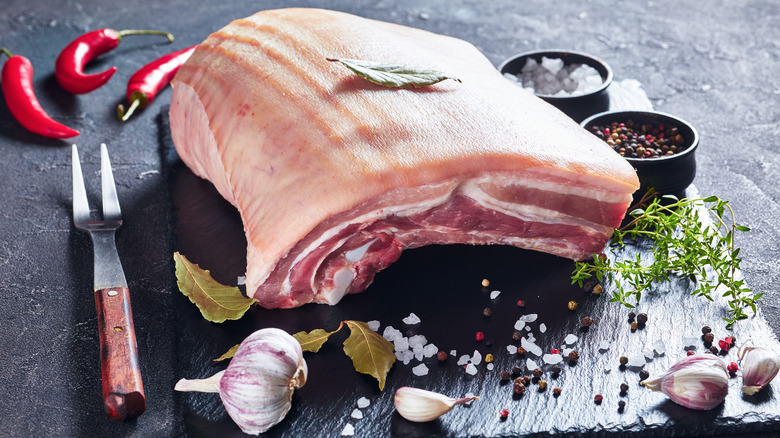What To Consider When Substituting Bacon For Pork Belly
Is bacon a cut of pork or a type of preparation of pork? Well, it's both: MasterClass says bacon is typically a very thinly sliced pork belly that has undergone a curing process, though it can come from other parts of the pork. It's safe to say that bacon, at one point, took over the culinary world in the mid-2010s, as shown in Smithsonian Magazine. Every clothing store selling graphic tees had at least one that paid homage to this salty, crunchy strip of pork. Bacon is still a staple on a continental breakfast plate and regularly paired with Brussels sprouts, but it does seem to have become a less trendy food item over the last few years.
Then we have pork belly, which, as most can probably guess, comes from the underside of a pig. Boasting a sediment of chewy skin, pure fat, and meat, this striped cut of pork is phenomenal in its many preparations. You'll find it smoked in Southern barbecue, charred in Korean barbecue, and braised in ramen. Pork belly provides textures from soft to tender to chewy in a single bite. So could it replace bacon as a breakfast staple? Or, vice versa, can bacon be used instead of pork belly? Well, it is possible to substitute bacon for pork belly, but there is a glaring difference that you should take into consideration.
Consider bacon's high salt content
Bacon is salty, but pork belly is not. If you use as much bacon as you would pork belly in a dish, you'll probably end up with something far too high in salt content. You can think of bacon as a specific preparation of pork belly, very thinly sliced and cured with salts, nitrates, and nitrites, which apparently give it its deep pink color, per MasterClass. You may wonder about uncured bacon, another popular type of bacon found at the grocery store. Unfortunately, despite its name, all bacon is cured. Uncured bacon simply omits the use of artificial nitrates, and natural sea salt or celery powder is used instead (via MasterClass).
Pork belly as a cut is fresh meat that has no preservatives. This means that pork belly has a shorter shelf life and must be seasoned. Replacing bacon with pork belly calls for an immense amount of added salt if you are trying to come close to crispy, flavorful bacon bits. Furthermore, most pork belly is cut thicker and requires a longer cooking time than bacon does. Still, pork belly is a more versatile ingredient that can be braised, deep-fried, slow-cooked, and pan-fried, while bacon is usually just fried to a crisp, according to Barbecue FAQ. If you're trying to cut back on sodium, frying some thinly sliced pork belly can be a healthier alternative while still adding a meaty centerpiece to your breakfast.

